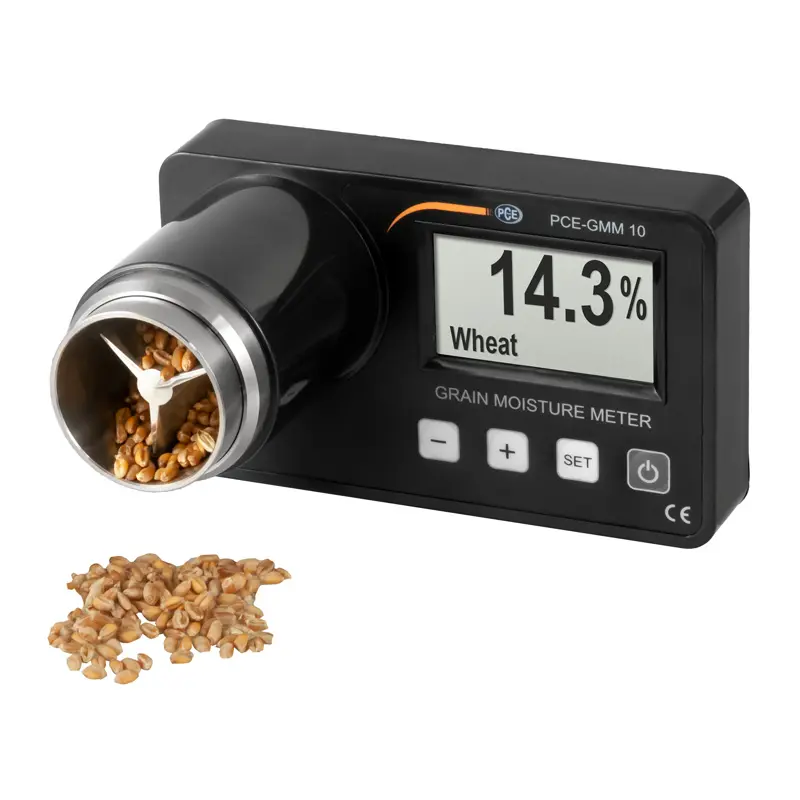Recognizing the Different Kinds Of Moisture Meters and Their Applications
Recognizing the Different Kinds Of Moisture Meters and Their Applications
Blog Article
The Ultimate Overview to Dampness Meters: A Comprehensive Introduction and How They Can Conserve You Cash
Dampness meters offer as indispensable tools in detecting and monitoring moisture content in products, aiding in stopping pricey damages and guaranteeing the high quality of products. Understanding the nuances of different types of moisture meters, their applications, and the possible cost-saving benefits they supply can be a game-changer for organizations and experts alike.
Types of Wetness Meters
Numerous sorts of moisture meters are offered for various applications in different sectors. One common kind is the pin-type moisture meter, which gauges the electrical resistance in between two pins inserted right into a material. This type appropriates for wood, drywall, and other building materials. Pinless moisture meters, on the other hand, usage electromagnetic sensor plates to check a larger location without creating damage to the material's surface. Moisture Meter. These meters are optimal for swiftly examining wetness degrees in big areas such as floors and walls.

Additionally, there are also specialized dampness meters designed for specific products like grain, soil, or hay. These meters offer accurate dampness analyses customized to the special residential or commercial properties of the product being checked. Infrared wetness meters measure the thermal residential or commercial properties of a material to determine its wetness content non-invasively, making them helpful for applications where pin or pinless meters may not be appropriate. Comprehending the various sorts of wetness meters available can assist sectors pick the most appropriate tool for their particular moisture measurement demands.

Advantages of Utilizing Moisture Meters
Wetness meters use invaluable advantages in precisely monitoring and assessing wetness levels in diverse materials and environments. One of the main benefits of making use of dampness meters is the avoidance of potential damage triggered by excess dampness.
In addition, using wetness meters can lead to increased energy performance. In agricultural settings, dampness meters play an important duty in optimizing plant returns by allowing farmers to monitor soil wetness degrees and make informed watering choices.
How to Choose the Right Dampness Meter
When selecting a dampness meter, it's essential to ensure that the meter is suitable for the details material you will be screening. Various materials have differing electrical residential properties that can impact moisture analyses, so choosing a meter designed for your product is essential for exact outcomes. By thoroughly evaluating these aspects, you can choose a dampness meter that satisfies your needs and gives precise dampness dimensions for your jobs.
Proper Methods for Moisture Meter Use

Price Financial Savings Via Dampness Meter Applications
Exactly how can the strategic application of moisture meters lead to considerable expense financial savings across different industries? In the farming sector, dampness meters help in establishing the ideal time for harvesting plants, stopping excess or over-drying moisture that can influence the final item's top quality.
In a similar way, in building, moisture meters aid stop costly problems by identifying wetness levels in building products, such as timber or concrete, which can cause architectural issues otherwise dealt with promptly. By recognizing problem locations beforehand, specialists can take rehabilitative procedures to avoid considerable repairs or replacements, ultimately saving time and cash.
In addition, in the food processing market, dampness meters are original site important for checking product high quality and ensuring compliance with security laws. By precisely gauging moisture content in food, producers can protect against spoilage, preserve freshness, and minimize waste, causing substantial expense financial savings. Generally, the tactical application of dampness meters is a valuable investment that can lead to significant cost reductions and improved performance throughout numerous sectors.
Verdict
In conclusion, dampness meters are useful tools for determining and spotting moisture degrees in different products. By using the best wetness meter and adhering to correct strategies, customers can properly prevent costly damages created by excess dampness.
Moisture meters serve as important tools in discovering and monitoring moisture web content in products, helping in protecting against costly damages and guaranteeing the top quality of products. Infrared wetness meters measure the thermal residential properties of a product to determine its dampness material non-invasively, making them helpful for applications where pin or pinless meters may not be suitable.Moisture meters supply vital benefits in properly evaluating and checking wetness levels in varied materials and environments. In farming settings, moisture meters play an important function in enhancing crop yields by enabling farmers to keep track of soil wetness degrees and make notified irrigation decisions.In conclusion, wetness meters are important tools for discovering and determining wetness levels in various more products.
Report this page